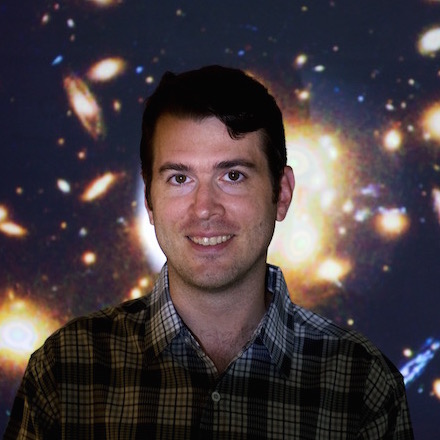Quinn Minor

Associate Professor
Science
EMAIL: qminor@bmcc.cuny.edu
Office: N-699E
Office Hours:
Phone: +1 (212) 776-7856
Astrophysicist and Professor of Science Quinn Minor taught as a visiting professor at Le Moyne College in Syracuse and at SUNY Oneonta in Oneonta, New York before joining BMCC. He is also a research associate in the Department of Astrophysics at the American Museum of Natural History and a member of CUNY Astro.
Professor Minor’s research focuses on dark matter in dwarf spheroidal galaxies, which are among the most dark matter-dominated objects in the universe. In helping to elucidate the particle nature of dark matter, he is developing statistical tools to extract the amount and distribution of dark matter in dwarf galaxies from spectroscopic data sets. He also studies binary star populations in these galaxies, comparing binary properties in different populations to test the universality of the star formation process.
Another research focus is using strong gravitational lensing to probe dark matter halo structure and substructure, particularly from upcoming sky surveys such as LSST, and Professor Minor has written software to simulate gravitational lenses for this purpose.
While his research is complex, Professor Minor makes the subject of astrophysics accessible to students at all levels. Early stars “spit out heavier elements like silicon and iron through supernovas,” he says, “and they spewed them out so fast, if the extra gravitational pull of dark matter hadn’t been around to keep it all from escaping into intergalactic space, our earth would never have been formed.”
BMCC students not only expand their understanding of the universe, but learn scientific computing skills and lab protocols as they work with Professor Minor on his research including the project, “Testing the Cold Dark Matter Model by Constraining Dark Matter Substructure in Gravitational Lens Galaxies.” Funded by NSF’s Division of Astronomical Sciences (AST), this research started in 2016 and will continue through August 31, 2019.
Expertise
Degrees
- Ph.D. SUNY Oneonta, Physics,
- Bachelor of Science University of Washington, Seattle, Physics,

